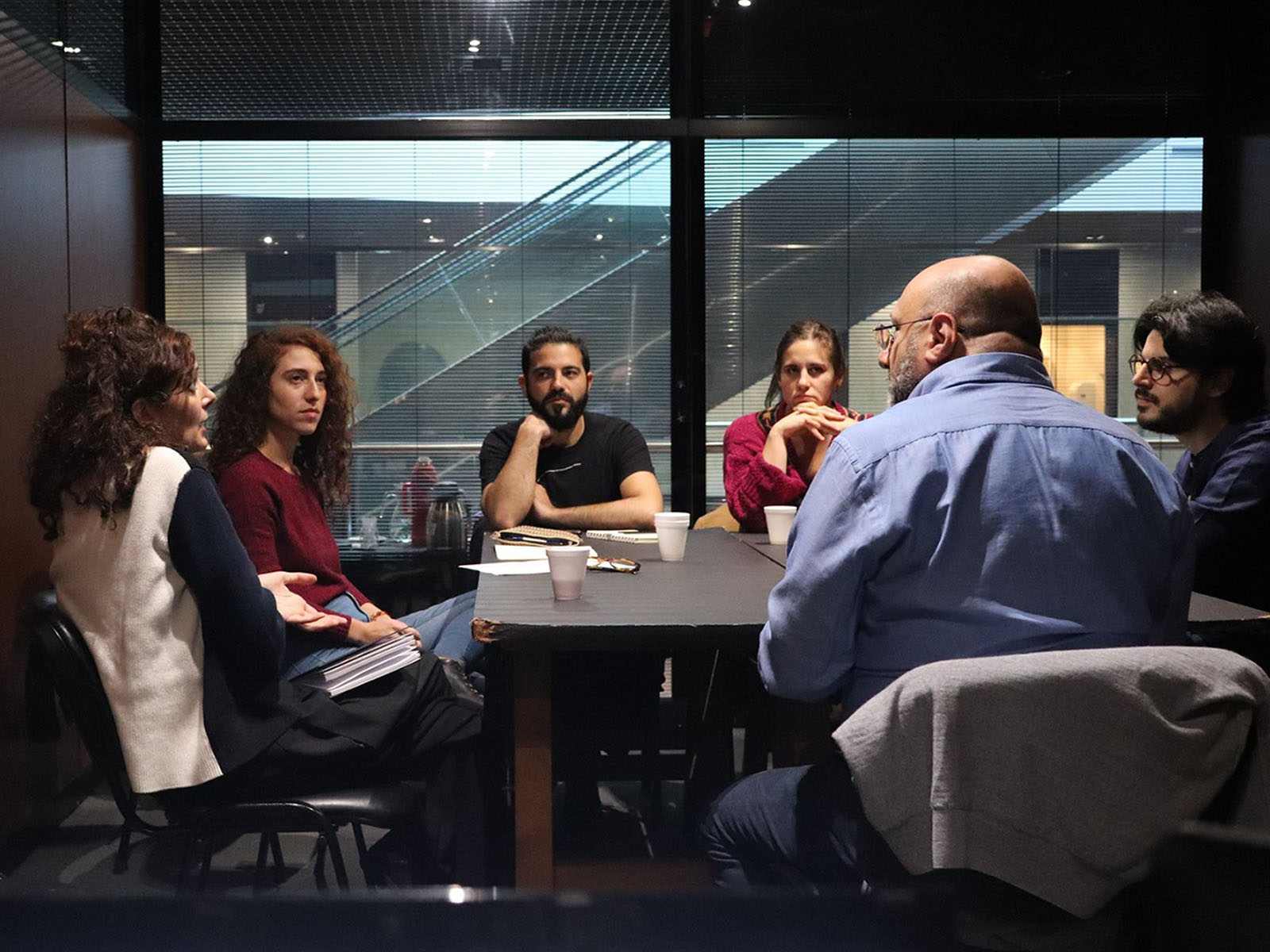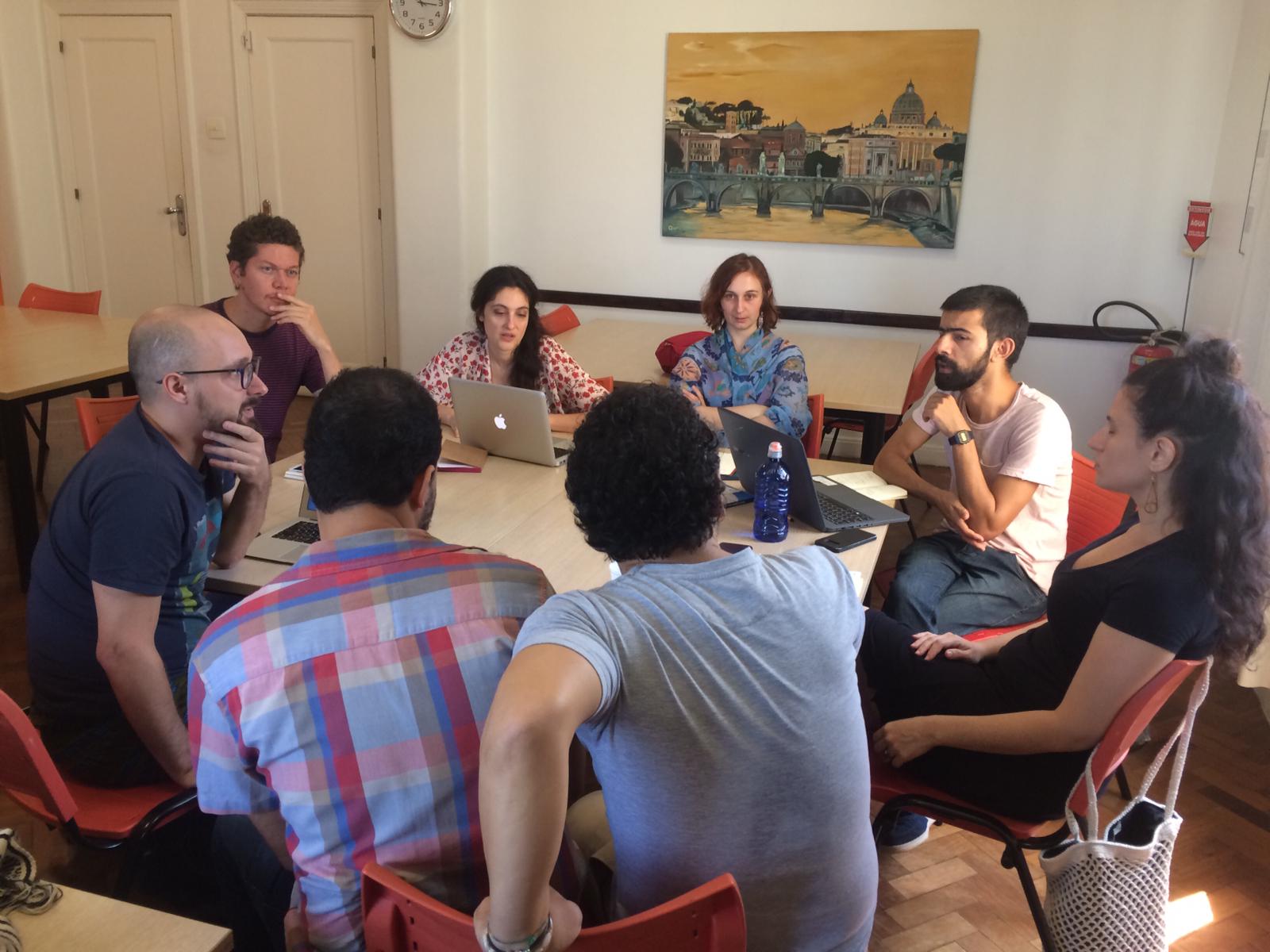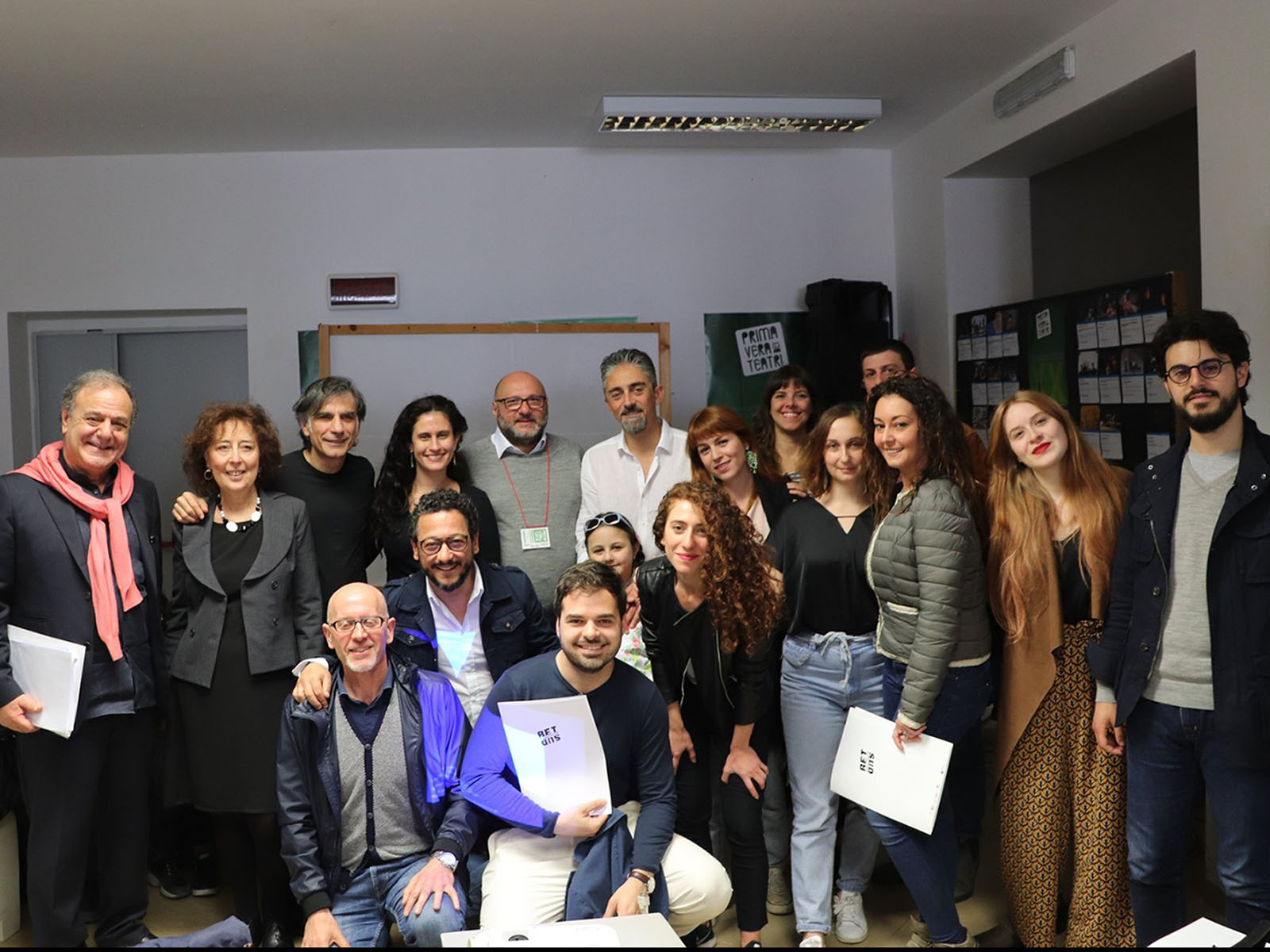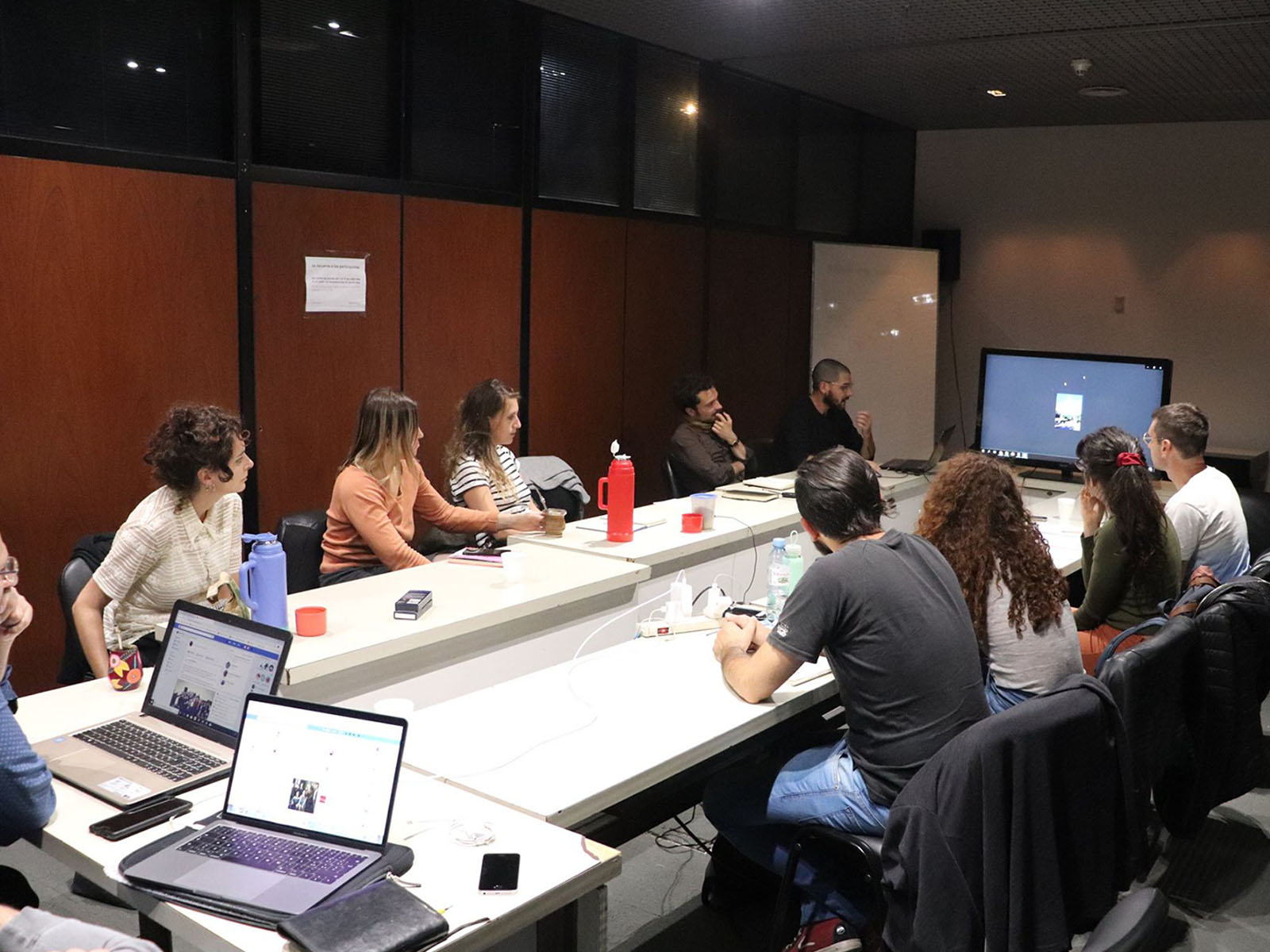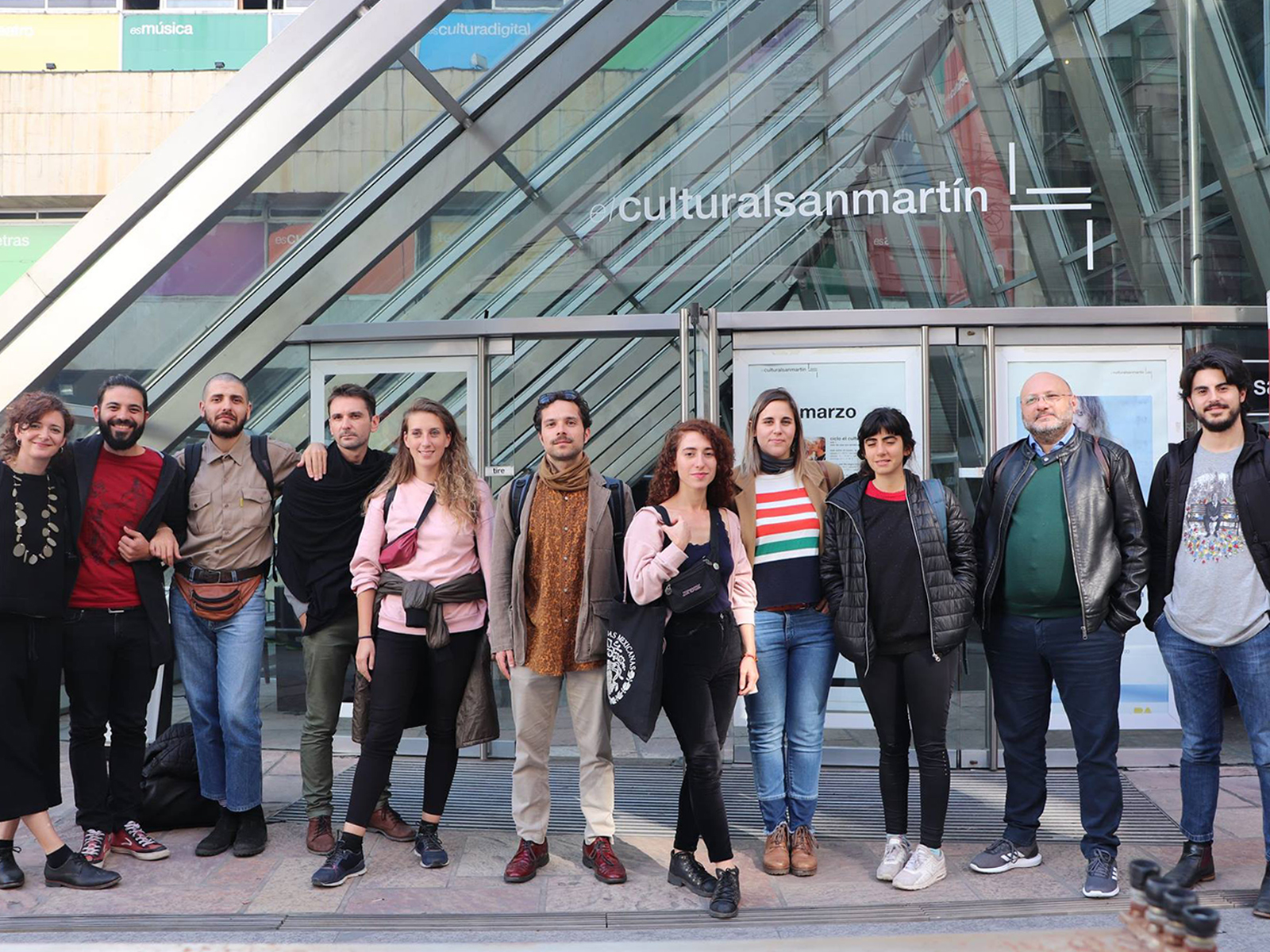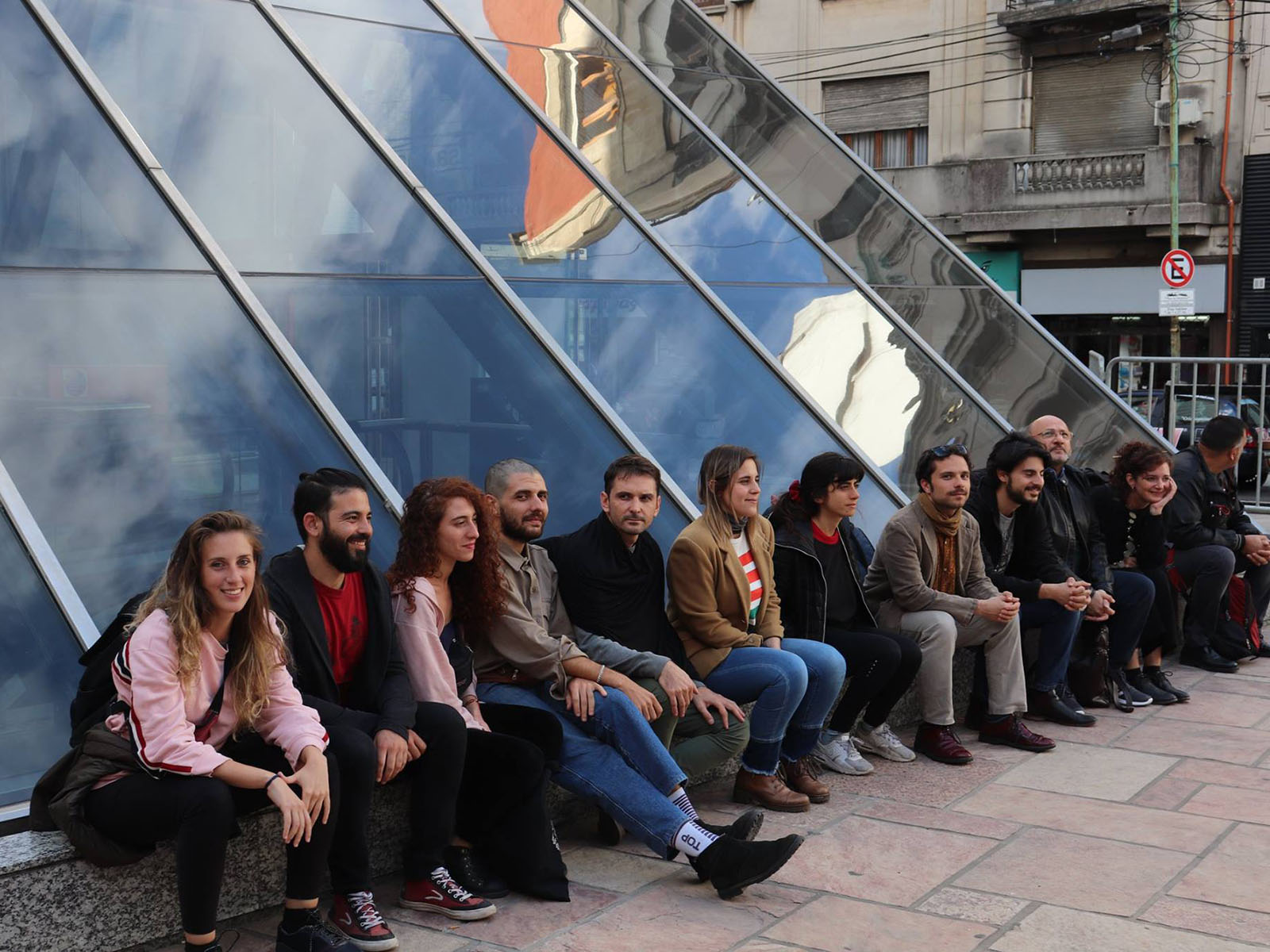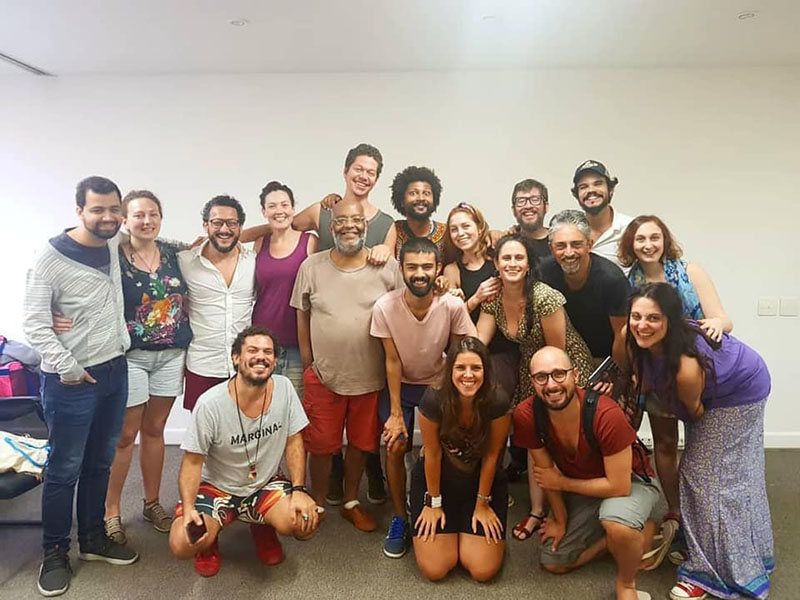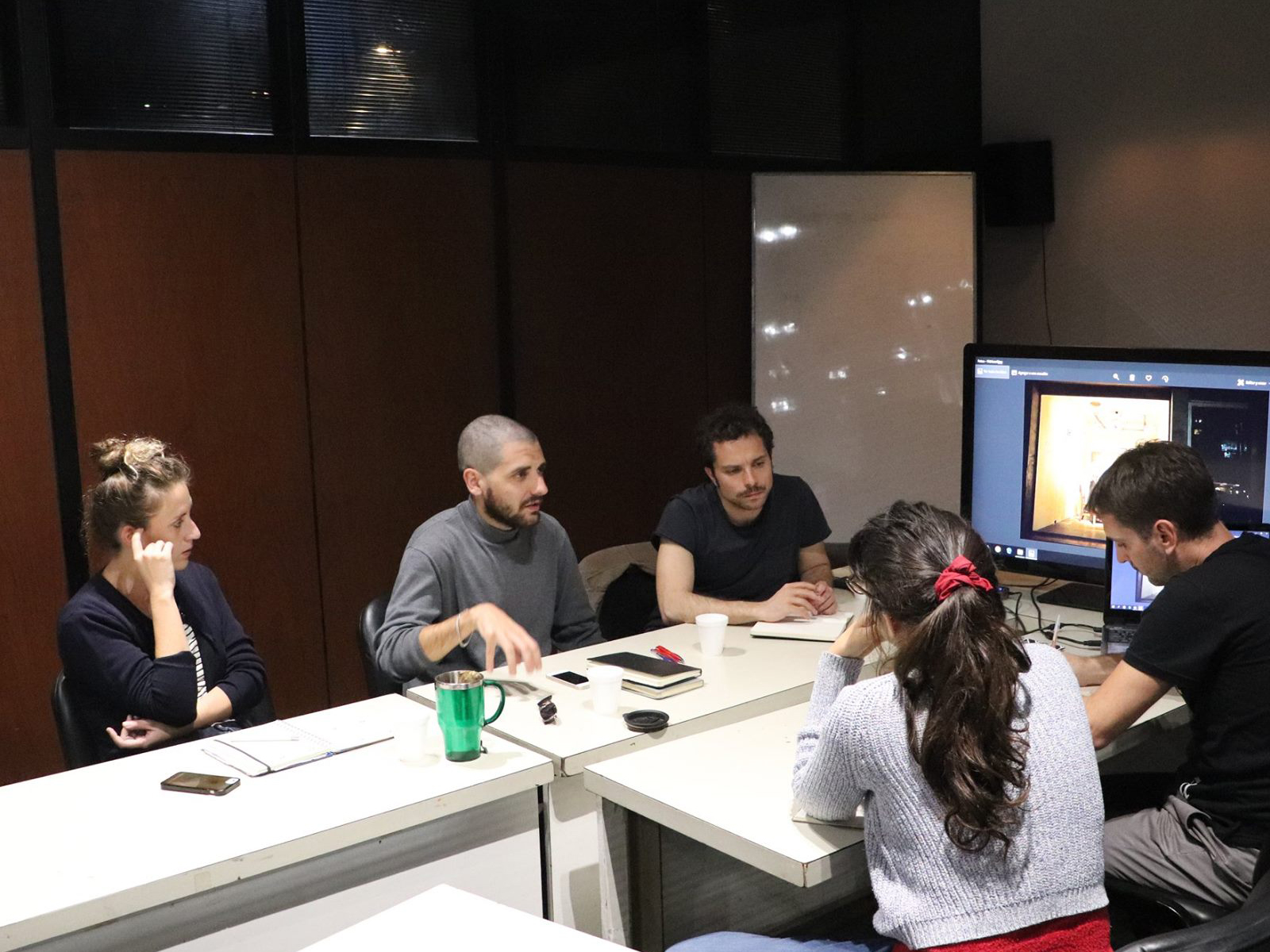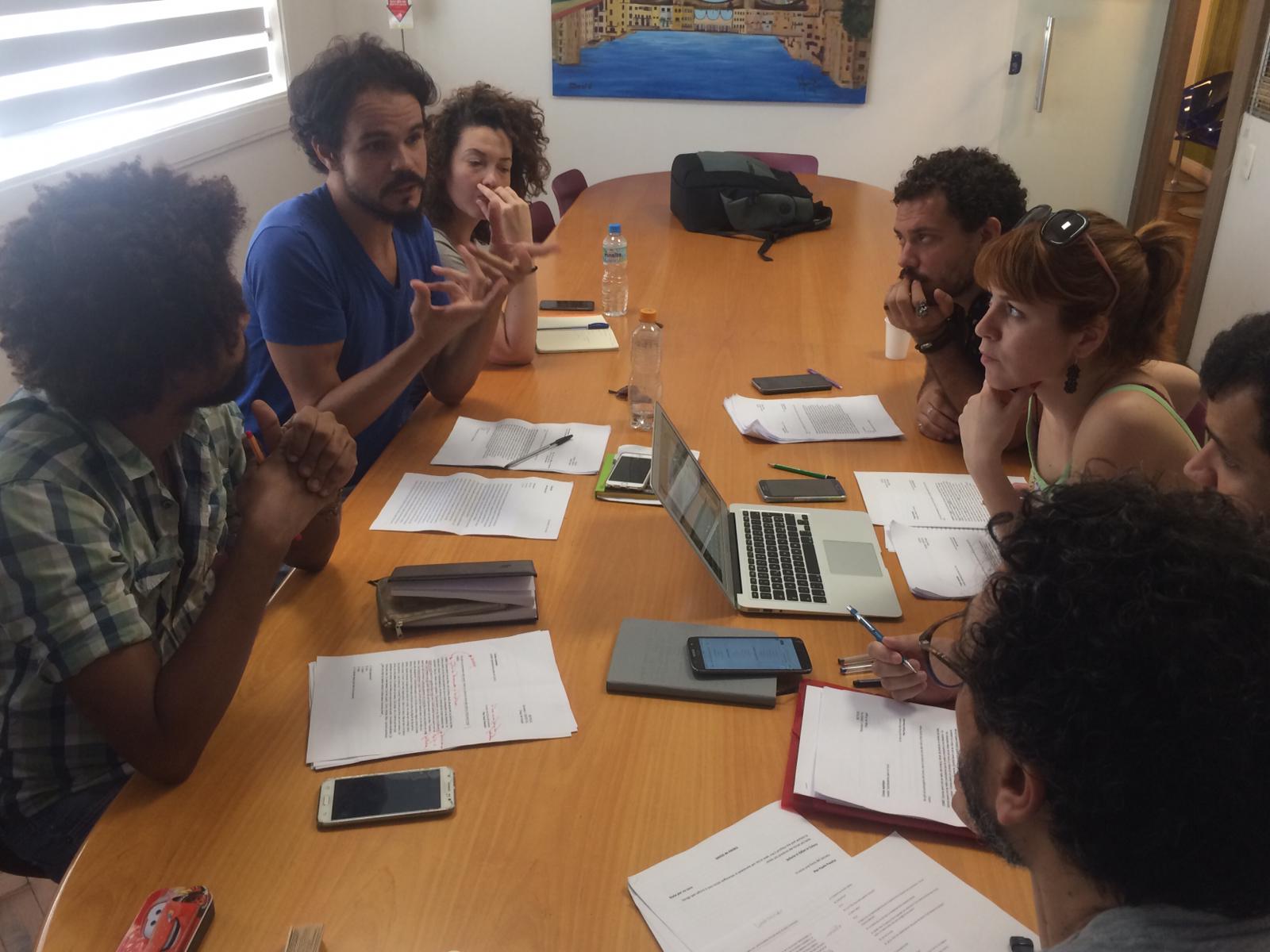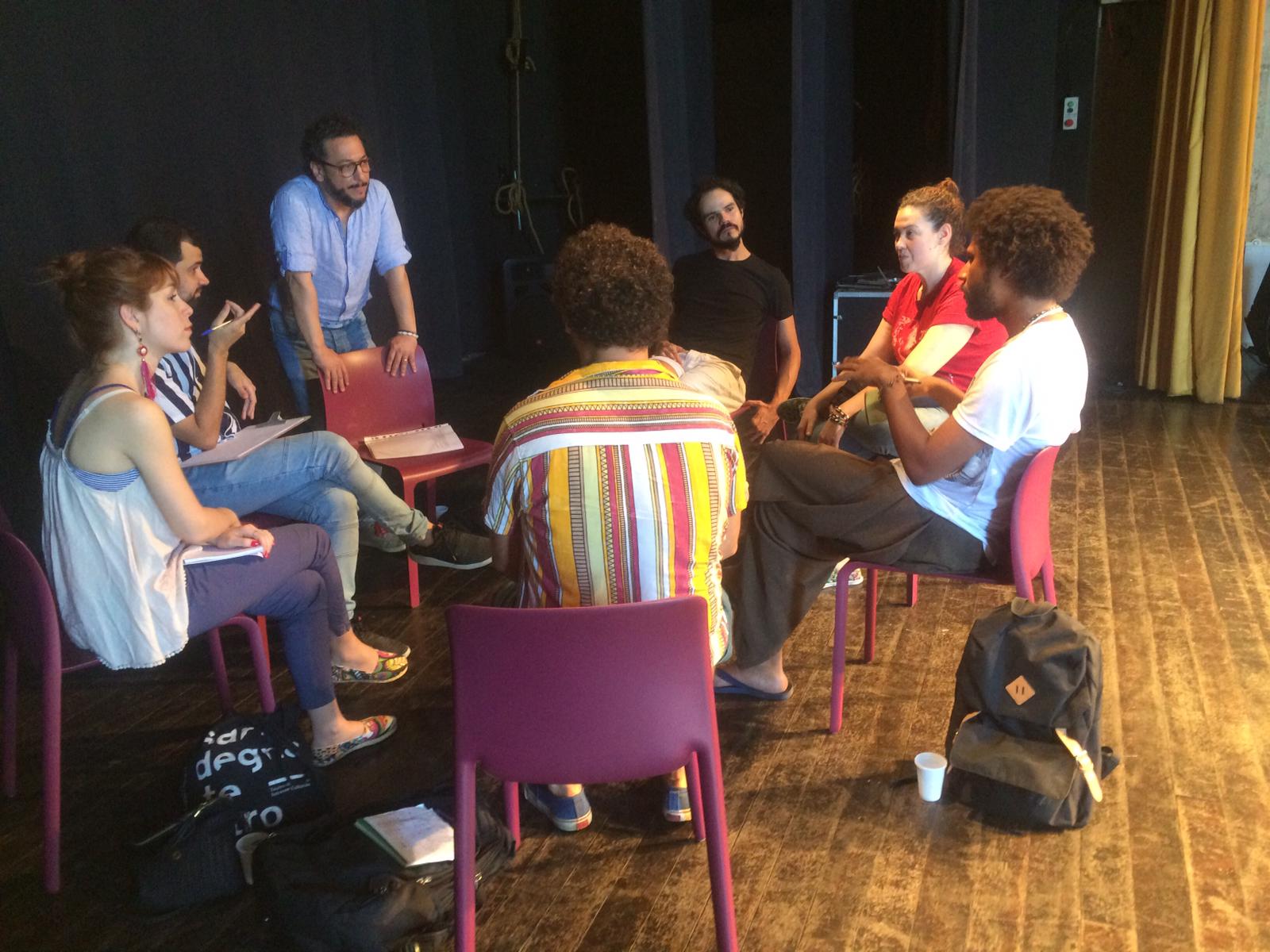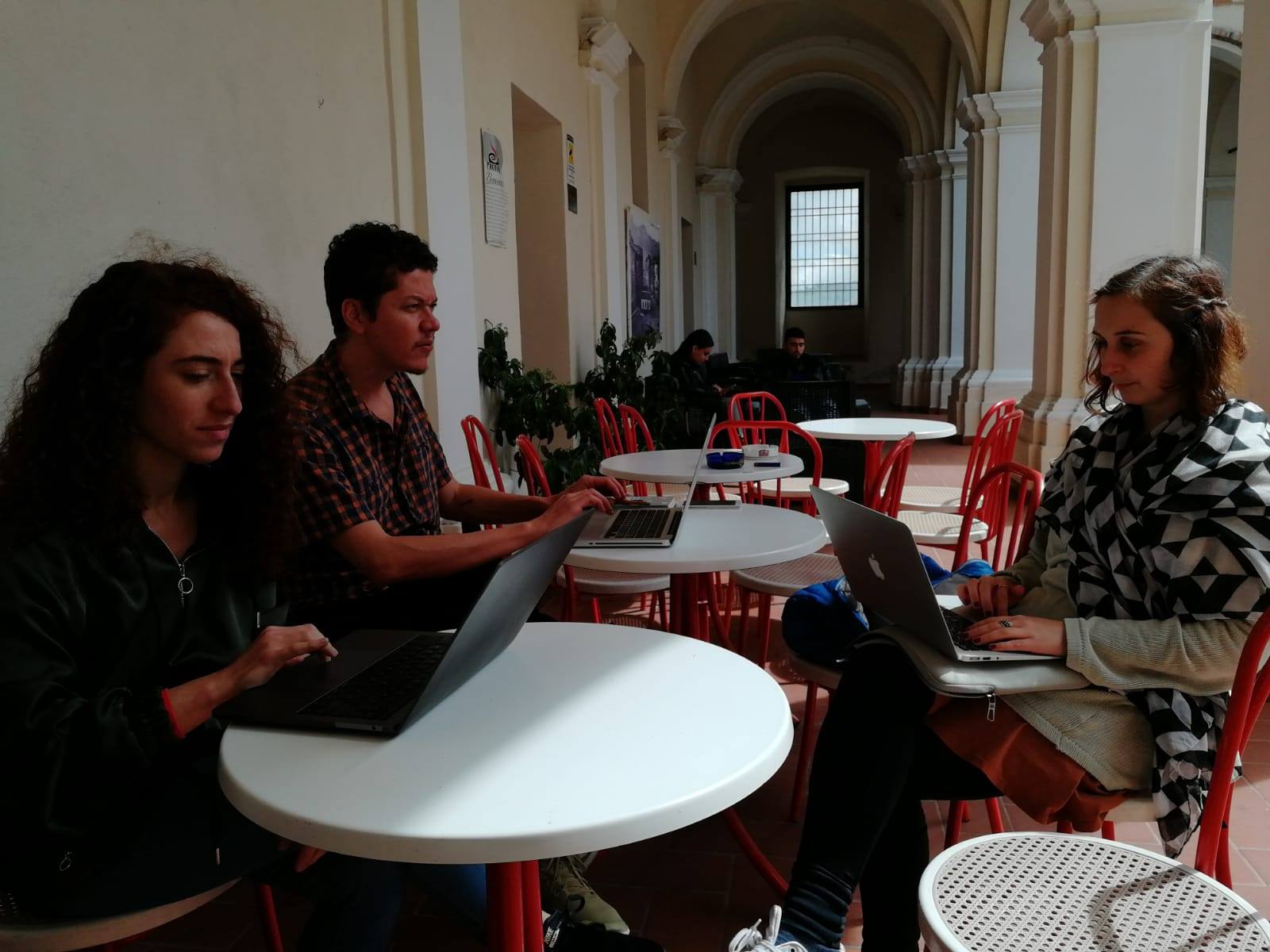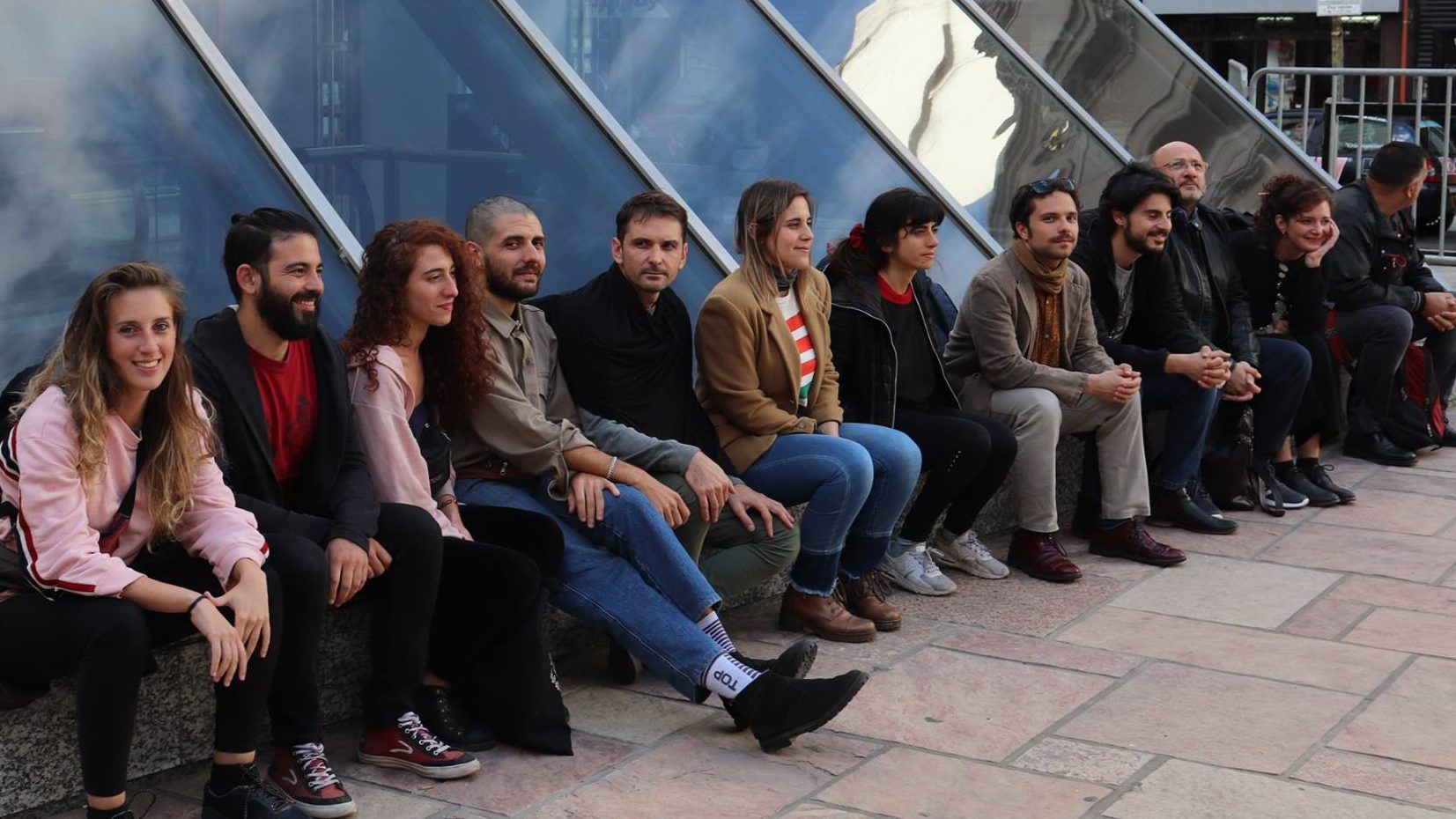
Il progetto
L’ATS BeyondtheSUD (BETSUD), composto dagli organismi Teatro della Città srl – Centro di Produzione Teatrale (capofila), Teatro Libero Palermo – Centro di Produzione Teatrale (partner), Scena Verticale (Castrovillari), Cantieri culturali Koreja (Lecce), Nuovo Teatro Sanità (Napoli), a seguito dell’aggiudicazione del Bando “Boarding pass plus” promosso dal MIBAC, intende promuovere, con l’omonimo progetto, nuovi modelli di gestione e produzione delle imprese culturali italiane in ambito internazionale, e specificatamente nel Latino America, e nel contempo favorire lo sviluppo di carriere di giovani artisti e operatori under35 in un contesto internazionale.
Per il primo anno il progetto ha individuato come partner internazionali, El Cultural San Martin e Panorama Sur di Buenos Aires (Argentina); Complexo Duplo e il festival Cena Brasil Internacional di Rio de Janeiro (Brasile).
BETSUD vuole mettere in relazione produttori/organizzatori, drammaturghi e registi, considerati elementi fondanti del processo creativo, in un confronto costante, per la realizzazione di due produzioni teatrali a conclusione del progetto e un archivio online di nuova drammaturgia Italiana e Latino-Americana.
The project
BeyondtheSUD (BETSUD) project is proposed by a consortium composed by: Teatro della Città srl – Theater Production Center, Catania (project leader), Teatro Libero Palermo – Theater Production Center, Scena Verticale (Castrovillari), Teatro Koreja (Lecce), Nuovo Teatro Sanità (Naples). The project is among the winners of the tender “Boarding pass plus” promoted by MIBAC – Ministry for cultural assets and activities (Italy).
BETSUD wants to promote new models of management and production of Italian cultural companies in the international context, with a focus in Latin America. At the same time it wants to help grow young artists and operators under 35 in an international context.
For the first year the project has identified two international partners: El Jardin Sahel – Center of creative residency in Buenos Aires (Argentina) and Cena Brasil Internacional festival in Rio de Janeiro (Brazil).
BETSUD wants to relate producers/organizers, playwrights and directors, considered fundamental elements of the creative process, in a constant confrontation, for the realization of two theatrical productions and an online archive of new Italian and Latin-American dramaturgy.
Partecipanti
Hanno preso parte alla prima edizione 26 giovani tra registi, drammaturghi e producer/organizer provenienti da tutti i paesi partner.
Participants
26 young directors, playwrights and producer / organizer from all partner countries have took part in the first edition.
Risultati
Sono stati scritti 9 testi originali (A nave vai di Diogo Liberano; Chumbo di Cecilia Ripoll; Coisas exploden di Diego De Angelis; Notte Bianca di Tatjana Motta; Un’esistenza d’acquario di Laura Tedesco; Una storia di impossibilità di Fabio Pisano; Queremos ser nuestrxs propixs líderes di Giuliana Kiersz; Servas di Ricardo Ryser; Trabajo de campo di Carolina Steeb) di cui due (Una storia di impossibilità di Fabio Pisano e A nave vai di Diogo Liberano) sono stati prodotti e portati in tournèe presso le sedi dei partner Italiani e a Buenos Aires, con la regia di Agostina Luz Lopez e Carmelo Alù.
Outputs
9 original plays have been written (A nave vai by Diogo Liberano; Chumbo by Cecilia Ripoll; Coisas exploden by Diego De Angelis; Notte Bianca by Tatjana Motta; Un’esistenza d’acquario by Laura Tedesco; Una storia di impossibilità by Fabio Pisano; Queremos ser nuestrxs propixs líderes by Giuliana Kiersz; Servas by Ricardo Ryser; Trabajo de campo by Carolina Steeb) and two (Una storia di impossibilità by Fabio Pisano e A nave vai by Diogo Liberano) were produced and touring at the venues of the Italian partners and in Buenos Aires, under the direction of Agostina Luz Lopez and Carmelo Alù.
Premi e riconoscimenti
Una storia di impossibilità di Fabio Pisano ha vinto il Premio Fersen 2019 e il testo La Notte bianca di Tatjana Motta il Premio Riccione per il Teatro 2019.
La drammaturga argentina Giuliana Kiersz, è stata in seguito selezionata dalla prestigiosa Akademie Schloss Solitude di Stoccarda.
Prizes and wards
Una storia di impossibilità by Fabio Pisano won Italian Prize Fersen 2019 and the play La Notte bianca by Tatjana Motta the Italian Prize Riccione per il Teatro 2019.
The Argentine playwright Giuliana Kiersz was selected later by the prestigious Akademie Schloss Solitude in Stuttgart.
A Nave vai (The Ship goes)
Diogo Liberano
traduzione italiana Letizia Russo, regia Carmelo Alù
con Francesca Farcomeni, Domenico Macrì e Marco Quaglia
produzione esecutiva Jonathan Bertolai, disegno luci e realizzazione scene Simone Raimondo
Diversi momenti che raccontano l’inizio e lo sviluppo di una relazione d’amore
tra un uomo di 31 anni e un altro di 43 anni, narrati dal punto di vista di un’auto con spazio interno per sole due persone. Mentre l’uomo più giovane teme il futuro, per paura di essere visto lontano dall’uomo di cui si è innamorato, l’uomo più anziano cerca di sfuggire al suo passato, segnato da recenti traumi. La drammaturgia presenta questa relazione attraverso un dialogo esposto tra la macchina, affettuosamente chiamata “La nave” e la coppia di innamorati. L’argomento da cui è stata composta la drammaturgia è affrontato in un modo diverso: invece di presentare una relazione omosessuale attraverso una trama segnata da intolleranza e violenza per un amore tra persone dello stesso genere, “The Ship goes” afferma l’amore come un’esperienza che ci rende, indipendentemente dal nostro orientamento sessuale, esseri umani.
Diverse moments that present the beginning and the development of a love relationship
between a man of 31 and another of 43 years, narrated from the point of view of a car with interior space for only two people. While the younger man fears the future, for fear of being seen away from the man he fell in love with, the older man seeks to escape his past, marked by recent traumas. The dramaturgy presents this relationship from an exposed dialogue between the car, affectionately called “The Ship”, and the pair of lovers. It seeks, with the presence of the character “The Ship”, to launch what would be just another love story, a refreshing look capable of bringing unthinking considerations about the experience of being alive and in love. The topic from which the dramaturgy was composed is approached in a different way: instead of presenting a homosexual relationship through a plot marked by intolerance and violence to the love between people of the same genre, “The Ship goes” affirms love as an experience that ground us and makes us, regardless of our sexual orientation, human beings.
A history of impossibility
Fabio Pisano
regia Agostina Luz López,
con Claudio Boschi, Barbara Giordano, Fabrizio Martorelli, aiuto regia e produzione esecutiva Alice Ferranti, disegno luci Alessandro Messina, ideazione scenica Mariú Fermani, elementi di scena Carmine De Mizio, costumi Alessandra Gaudioso, foto di scena Vincenzo Antonucci
Una storia di impossibilità è un dramma in atto unico, che narra la storia di una coppia, i cui nomi sono UNO e MOGLIE, e del migliore amico di lui, ZERO. UNO e MOGLIE sono sposati da poco, e lui le rivela di non poter avere figli, di essere “sterile”, probabilmente a causa dell’uso di droghe fatto in età giovanile. I due affrontano il problema con grande dolore e provano, inizialmente, a trovare una soluzione quando UNO ha un’idea: far concepire il figlio a ZERO, il suo migliore amico, amico di sempre. UNO e ZERO si incontrano, e dopo aver saputo tutto, ZERO accetta di concepire un figlio con MOGLIE; lo fa per l’enorme affetto che prova per UNO, lo fa, per un amore mai confessato che prova per lui. Ma la storia prende una piega differente, inaspettata. MOGLIE avverte una attrazione particolare per ZERO, per il migliore amico del marito, una attrazione forse alimentata anche dalla fertilità, dalla possibilità di concepire un figlio. UNO va in crisi, una crisi silente, taciuta per amore della MOGLIE e per amore di questo figlio che sta per nascere, che scalcia, e scalcia e scalcia. Nel testo è presente un personaggio, il DIDASCALISTA, che allaccia le varie scene (che non seguono un ordine temporale preciso) mediante una diretta spiegazione al pubblico di ciò che avviene; spiegazione sempre al limite, soprattutto per gli attori/personaggi presenti in scena.
“Una Storia di Impossibilità” is a drama in a single act, which tells the story of a couple, whose names are UNO and MOGLIE, and his best friend, ZERO.
UNO and WIFE are recently married, and he reveals that he cannot have children, that he is “sterile”, probably due to the use of drugs done at a young age. The two face the problem with great pain and try, initially, to find a solution when UNO has an idea: to make ZERO conceive his son, his best friend, a friend of his time, known years before. UNO and ZERO meet, and after knowing everything, ZERO agrees to conceive a child with WIFE; he does it because of the enormous affection he feels for ONE, he does it, out of a love he never confessed to try for him. But the story takes a different, unexpected turn. MOGLIE senses a special attraction for ZERO, for her husband’s best friend, an attraction perhaps also fueled by fertility, the possibility of conceiving a child. ONE goes into crisis, a silent crisis, silenced for the love of WIFE and for the love of this child who is about to be born, who kicks, and kicks and kicks.
A few hours before the birth, however, UNO and ZERO meet, to close the matter with a murder. ONE can’t stand to know ZERO alive. AND ZERO, agree to be killed before the baby is born. After the murder, UNO, obstetrician, runs to be there for the birth; the child, however, is born without legs. WIFE does not want to keep him, but ONE feels that he loves this malformed child, the son of a love that characterizes a story of impossibility. They will keep the child; he will grow it like his son and decides to draw the moment, the first moment in which WIFE holds it in his arms. In the text there is a character, the DIDASCALISTA, who links the various scenes (which do not follow a precise temporal order) through a direct explanation to the public of what happens;

